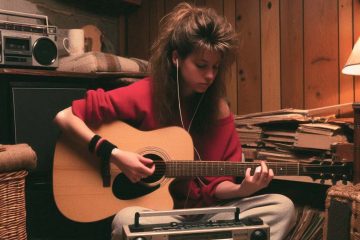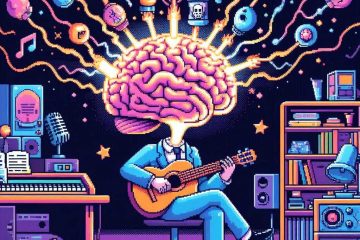“Those who do not want to imitate anything, produce nothing.” Salvador Dali
“Immature poets imitate; mature poets steal; bad poets deface what they take, and good poets make it into something better, or at least something different.” – T.S. Eliot
I can hear the horror in some people’s minds at this thought of stealing from someone else’s song as a songwriting tip. However, consider this, if you want to get better at something, “stealing” from the work of those who are better at it than you might be a good way to learn.
When I’m learning an instrument, if I want to get better at playing a certain style would I play scales and arpeggios for hours based on the song’s chords (still not a bad thing to do)? Or would I learn songs that contains those techniques from that style I want to learn. Learning the song creates a practical scaffolding to learn the techniques you want to acquire in that style. The same is true for songwriting.
Stealing ≠ Copying
When I say steal from other songs, I don’t mean straight out copying (although that can be a helpful technique for learning how to sound design – but that’s for another post). I mean using songs in the genre you’re writing for as prompts for structure, arrangement, melodic and chordal ideas.
“Don’t just steal the style, steal the thinking behind the style. You don’t want to look like your heroes, you want to see like your heroes.” – Austin Kleon
Here’s the thing – most successful songwriters do this. Mostly because they love certain songs and want to write something like them. Invariably because we are our own person, even the songs we make where we steal from another song will often turn out completely different than the original.
Learn The Songs You Love
I read a book a while back about the Australian singer songwriter Paul Kelly. It was an interesting read from a biographical perspective but I was pleasantly surprised to find some little nuggets of songwriting wisdom scattered throughout the book. One such nugget was talking about the songwriting of another venerated artist Neil Finn of Crowded House fame.
Paul and Neil went on a tour together in 2013. They played in the band together and played each other’s songs. Neil and Paul both mentioned something about the process of learning those songs which shows the power in learning and copying other artists music:
“What was great for me was learning his songs. You hear these beautiful songs that sound so effortless, almost like they came down from heaven with the music and those melodies.
Going inside them is like going into the gears of a watch … one verse will be slightly different from the one before and then there’ll be another little bit that’s different in the following verse
… I loved learning his songs and discovering all these beautiful intricacies. They’re not following formulas and they’re some of the greatest pop songs you’ll ever hear.” (Paul Kelly on Neil Finn’s songs)
The simple act of learning the chords, singing the melody gets you inside the song in a much more practical way. Taking it a step further and actually recreating the song in your DAW is a powerful way to examine the “gears in the watch”. This will teach you many things about that song but more importantly more universal techniques the songwriter uses.
As you explore more songs in this way it can provide you with a library of songwriting techniques that you can use in your own music making. Going a step further, you can literally keep a log of these ideas for when you get stuck or want to spice up something you’re working on.
Song Tracing
One other idea that falls into the realm of copying is the idea of song tracing. I’ve done this before with media music pieces that I’ve written and it’s really effective. I’ll take a particular cue from a movie I like, pop the audio in my DAW and trace the structure and take cues from the instrumentation, arrangement, the energy of sections etc.
Here’s a video from Ricky Tinez talking about how he approaches song tracing.
I think this is a powerful way for all songwriters to work because again you’re giving yourself a map to work with. I find this helps me stay focussed and not get lost in the minutia. It also cuts down on decision fatigue meaning you can give more of your focus to the actual writing. You can also choose whether to trace very carefully or be a bit freer with your “lines” too.
The Takeaway
Regardless of how original we want or think we are, all the music we create draws from our musical experiences in some way. If you’re a seasoned songwriter or getting started, getting inside the songs you love and trying to recreate your own interpretations of songs you love will not only help your songwriting but build up the techniques you can employ in all the songs you write whether you’re stealing or not.



0 Comments